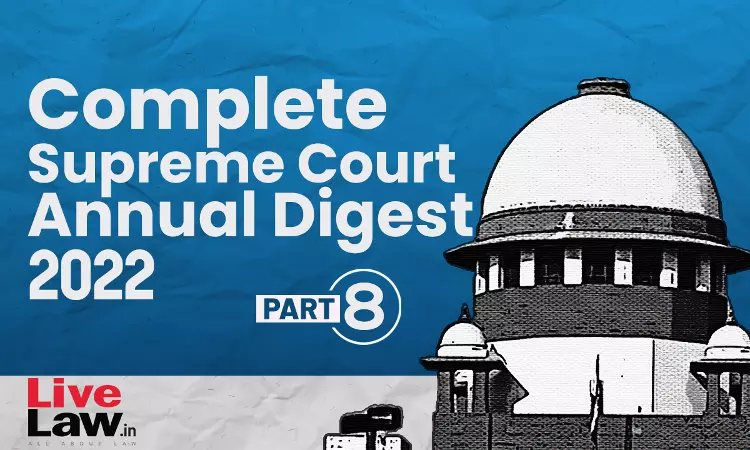- Home
- /
- Top Stories
- /
- Complete Supreme Court Yearly...
Complete Supreme Court Yearly Digest Part-8
LIVELAW NEWS NETWORK
19 Feb 2023 8:21 PM IST
MMaintenance and Welfare of Parents and Senior Citizens Act, 2007Maintenance and Welfare of Parents and Senior Citizens Act, 2007; Section 23 - Effecting transfer subject to a condition of providing the basic amenities and basic physical needs to the transferor – senior citizen is sine qua non for applicability of Section 23(1) - When it is alleged that the conditions mentioned in Section...
Next Story



